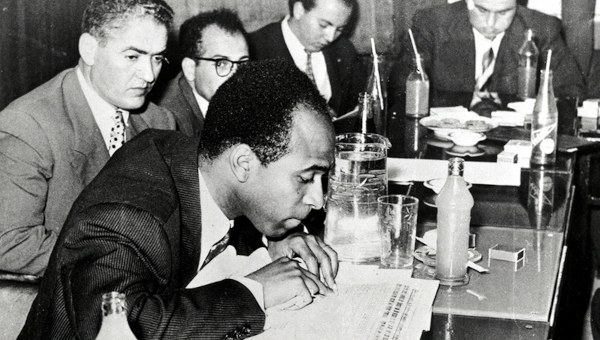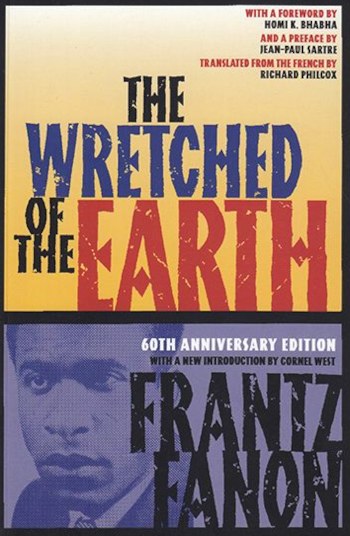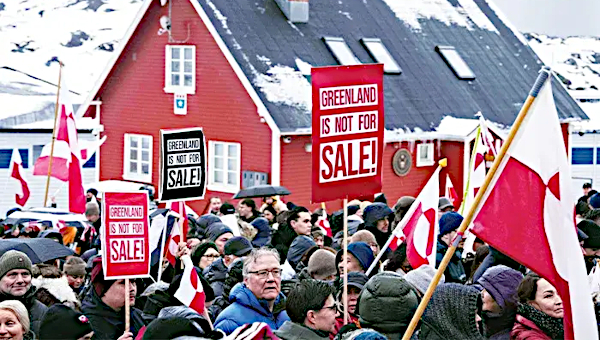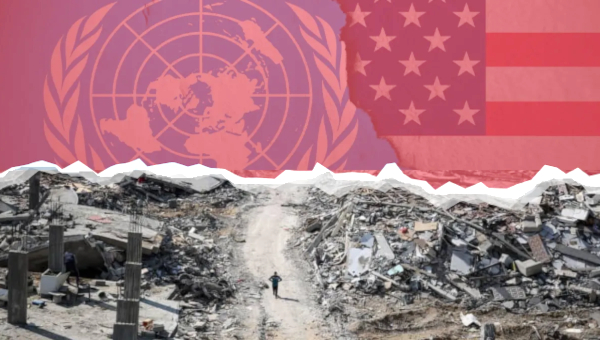Decolonising Development with Frantz Fanon
The great cultural theorist Stuart Hall called Frantz Fanon’s The Wretched of the Earth “the bible of decolonisation” as it encapsulated the urge for freedom across the colonial world.1 Fanon illuminates how racism represented an organising principle for capitalist classes by systematically devaluing the lives of the majority of the world’s population. “For centuries the capitalists have behaved like real war criminals in the underdeveloped world,” he wrote. “Deportation, massacres, forced labour, and slavery were the primary methods used by capitalism to increase its gold and diamond reserves, and establish its wealth and power.”2
One of the reasons for Fanon’s popularity among those who want to decolonise development is that he argued that post-colonial countries should forge their own paths to development rather than attempting to follow already developed countries. “The Third World must not be content to define itself in relation to values which preceded it,” he warned. “On the contrary, the underdeveloped countries must endeavour to focus on their very own values as well as methods and style specific to them.”
Not only did Fanon explain the horrors inflicted by colonialism upon native populations; crucially, he also conceived of real human development as a process rooted in a collective labouring class (comprising workers and poor peasants) transcending capitalist brutality.
However these two elements of his thought – the critical identification of the violence of colonialism, and a real human developmental alternative to it – have often been disconnected by thinkers influential to the decolonial movement. This represents a dangerous misinterpretation of Fanon. It obscures his vision of a decolonised world and the social forces able to construct it.

‘Little Indication’
The movement to decolonise development and development studies draws upon a variety of prior intellectual movements, especially from cultural and post-colonial studies. It uncovers the violent and ideological processes by which Indigenous voices were and still are marginalised by Northern powers. It challenges the ideology and practice of economic growth based catch-up development (where poorer countries squeeze their populations to raise the resources to become like richer countries). It reveals and counters the racism within universities and other key institutions. It calls, increasingly, for reparations to redress the damage wrought by slavery.
All these elements are foreshadowed in Fanon’s work – but he provided much more than this. However, some influential thinkers elevate Fanon’s critique of colonial capitalism, whilst demoting and misinterpreting his Marxist socialism. By doing so, they are providing a one-sided, lifeless portrayal of Fanon’s purpose. For example, in Postcolonialism: An Historical Introduction, Robert Young misinterprets Fanon’s politics by equating them with violent Maoism, whilst ignoring his vision of post-colonial socialist development: “What is noticeable about the FLN and Fanon’s position is that it is predicated on an espousal of the virtues and necessity of violence, with little indication of what the free society that was to follow liberation was to be like.”3
In his Culture and Imperialism, the great Palestinian activist-scholar Edward Said argues that Fanon fails to offer “a prescription for making a transition after decolonisation to a period … [of] a new political order.”4
Why are these writers so quick to disassociate Fanon’s critique of colonialism from his advocacy of anti-colonial socialist development? The answer may have to do with the fact they were more conservative than Fanon. Said, for example, draws on Fanon as part of his broader argument for (non-socialist) Palestinian nation-building, while Young is writing primarily for academic purposes.
In fact, Fanon’s advocacy of a ‘new humanism’ was central to his analysis of the historical moment of decolonisation. It combines the longer tradition of socialism from below – combatting and transcending capitalist exploitation through labouring class struggle and eventual control over the means of production – with a radical and highly original vision of a post-racial, post-patriarchal, post-alienated world.
Fanon’s New Humanism
Frantz Fanon wrote The Wretched of the Earth, first published in French in 1961, in a race against time, while he was dying from leukaemia. He died, tragically young, shortly after its publication. There was another reason for his urgency. The Algerian revolution against French rule stood at the gates of victory. However, with great perspicacity Fanon saw the dangers – of renewed elite, albeit now African, rule – that potentially lay ahead for the Algerian people and other soon-to-be liberated colonised peoples.
Fanon was inspired by Marx, but he was also disillusioned with the way Marxism had become stultified under the influence of Stalinism. The French Parti Communiste (PCF) approach to the Algerian revolution was national chauvinist rather than revolutionary communist. It characterised much of the revolution as acts of individual terrorists, supporting the French prime minster Guy Mollet’s 1956 bill giving the government ‘special powers’ in Algeria. These included a massive call up of reservists and the suspension of civil liberties in Algeria. More generally it privileged struggles by workers in the first world over anti-imperialist workers movements in the emergent ‘third world’.
In part because of the PCF’s reactionary Marxism, and like many revolutionaries before him, Fanon adapted, or in his words ‘stretched’, Marxism. He wrote The Wretched of the Earth to address the character of exploitation and oppression under capitalist colonialism in Algeria, the possibilities of a socialist revolution and the kinds of new humanist development that could flow from it. The book contains a dual critique – of the French colonial regime and of emerging post-colonial African elites – including obliquely, of the increasingly conservative military leadership of the Front de Libération Nationale.
“The European masses must first of all decide to wake up, put on their thinking caps and stop playing the irresponsible game of Sleeping Beauty.” — Frantz Fanon
For Fanon, a revolution – by the masses for the masses – had a triple role: to generate a thoroughgoing decolonisation, to transcend attempts by nationalist elites to capture the revolution and to enable the masses to realise their capacity to establish an historically novel form of democratic development. He hoped that this revolutionary force would unleash the cooperative spirit necessary for the emergence of a new humanism. Without it, he predicted that decolonisation would descend into a situation of renewed elite rule which he characterised as ‘a sort of little greedy caste, avid and voracious, with the mind of a huckster, only too glad to accept the dividends that the former colonial power hands out to it. This get-rich-quick middle class shows itself incapable of great ideas or of inventiveness. It remembers what it has read in European textbooks and imperceptibly it becomes not even the replica of Europe, but its caricature.’
Fanon’s identification of the peasantry as agents of revolutionary change was formed over the course of the Algerian revolution. From 1954, great numbers of the Algerian poor pitted themselves against a French colonial settler state for which the murder of civilians and the use of torture in concentration camps was virtually official policy. While they fought valiantly, they bore heavy losses. By late 1957 the French army had defeated the FLN in urban warfare, portrayed by the Italian filmmaker Gillo Pontecorvo’s The Battle of Algiers.
It was in this context – of the defeat of the urban working-class sections of the Algerian revolution – that University of Illinois professor Lou Turner argues Fanon ‘turned to the peasantry’.5 In part because of his advocacy of peasant revolution, Fanon has been associated by writers like Robert Young with Maoism – but this is a profoundly inaccurate interpretation.
He wrote Wretched just as news of Mao’s murderous great leap forward was filtering out of China and much of it is devastatingly critical of Maoist-style policies. His argument that the ‘notion of catching up must not be used as a pretext to brutalize man, to tear him from himself and his inner consciousness, to break him, to kill him’ can be interpreted as being directed as much against Mao’s regime as it was against the increasingly conservative Arab Nationalist elites, including the FLN.
Indeed it was the FLN leadership, not Fanon, who were in contact with Mao, receiving weapons from the People’s Republic of China via anti-working class Arab Nationalist regimes such as Gamal Abdel Nasser’s Egypt. Fanon’s advocacy of the peasantry as a mass revolutionary subject was qualitatively different from Mao’s which conceived of them as supporters of the revolutionary guerrilla army but not revolutionaries themselves. Furthermore, contrary to Mao, Fanon advocated an alliance between the Algerian peasantry and western workers.
Unlike many revolutionaries then and now, Fanon’s was not a male-orientated vision of social change. He argued that Algerian women were “fighting two colonialisms” – of Muslim and Western patriarchy. Furthermore, he advocated that women “shall be given equal importance to men, not in the articles of the constitution, but in daily life, at the factory, in the schools, and in assemblies.”
For the Disinherited and by the Disinherited
Part of this emancipatory dynamic would be a radically new form of development, distinct from emerging forms of top-down Arab and African socialism and nationalism. “If the national government wants to be national it must govern by the people and for the people, for the disinherited and by the disinherited.” Resource nationalisation “must not take on the aspect of rigid state control” as in the then-Soviet bloc and emergent independent African states. Rather, to “nationalize the tertiary sector means organizing democratically the cooperatives for buying and selling. It means decentralizing these cooperatives by involving the masses in the management of public affairs.” Yet this could be only the start. “The choice of a socialist regime, a regime entirely devoted to the people, based on the principle that man is the most precious asset, will allow us to progress faster in greater harmony, consequently ruling out the possibility of a caricature of society where a privileged few hold the reins of political and economic power without a thought for the nation as a whole.”

Fanon noted how post-Nazi Germany continued to apologise for the Nazi genocide and agreed to pay significant reparations to Israel. He advocated a similar programme of reparations, rather than aid, from former colonial countries to post-colonial countries to begin redressing the damage they had caused.
Fanon expounded a labouring class socialist internationalism which, unlike Maoism, included a key role for the European working classes. “This colossal task, which consists of reintroducing man into the world, man in his totality, will be achieved with the crucial help of the European masses who would do well to confess that they have often rallied behind the position of our common masters on colonial issues. In order to do this, the European masses must first of all decide to wake up, put on their thinking caps and stop playing the irresponsible game of Sleeping Beauty.”
Fanon’s new humanist development was based on a decentralised cooperative conception of the economy, rather than one based on private property or state-direction. It looked to a future of human relations free from the burdens of racism, patriarchy and capitalist exploitation. But for such a society to emerge he advocated a revolution by the masses which was sufficiently powerful to simultaneously eliminate colonial rule and bring to bear a new humanist subject of development.
Fanon wrote The Wretched of the Earth as a warning that the Algerian revolution itself was fated to follow other recently decolonised African societies, characterised by the emergence of oppressive states managed by newly independent nationalist elites. Indeed, his warnings about the politically narrow vision of the emergent post-colonial elites were amply confirmed. Upon independence in March 1962, French settlers fled Algeria abandoning their farms and factories. For three years workers managed many of these urban factories and farms. In June 1965 the conservative military wing of the FLN under Houari Boumédiène staged a coup, putting paid to attempts at socialist economic transformation.
Today, the increased interest in, and attempts to decolonise, development reflect the gross inequalities of the contemporary moment, the increasingly widespread realisation of how these are rooted in capitalism’s deep history and a growing movement for a more equitable world. While Frantz Fanon is one of the key figures invoked in this movement, it is important to emphasise that his critique of capitalist colonialism was part and parcel of his advocacy of a new humanist form of development – a vision and a democratising strategy based on workers’ and peasants’ mass collective action against capitalist exploitation. Otherwise we risk undermining the kinds of transformative social struggles required to make racism, patriarchy and class exploitation relics of history. •
This article first published on the Le Monde diplomatique website.
Endnotes
- Quoted by Homi Bhabha in the foreword to Franz Fanon, Black Skin, White Masks, trans. Richard Philcox, Grove Press, New York, 2008.
- Frantz Fanon, The Wretched of the Earth trans. Richard Philcox, Grove Press, New York, 2004.
- Robert Young, Postcolonialism: An Historical Introduction, John Wiley & Sons, New York, 2016.
- Edward Said, Culture and imperialism, Vintage, London, 2012.
- Lou Turner, “Fanon and the FLN: Dialectics of organization and the Algerian revolution,” in Nigel C. Gibson (ed.), Rethinking Fanon: The Continuing Dialogue, Humanity Books, Amherst, 1999.





